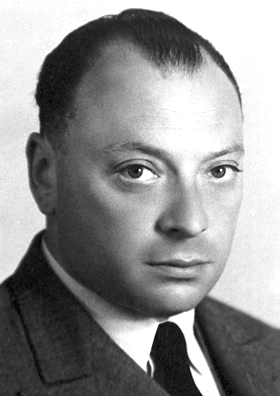Man's Right To Knowledge on:
[Wikipedia]
[Google]
[Amazon]
''Man's Right to Knowledge'' was a


radio program
A radio program, radio programme, or radio show is a segment of content intended for broadcast on radio. It may be a one-time production, or part of a periodically recurring series. A single program in a series is called an episode.
Radio netw ...
that ran from January 3, 1954 to December 26, 1954 on CBS
CBS Broadcasting Inc., commonly shortened to CBS (an abbreviation of its original name, Columbia Broadcasting System), is an American commercial broadcast television and radio network serving as the flagship property of the CBS Entertainme ...
. Created by Columbia University
Columbia University in the City of New York, commonly referred to as Columbia University, is a Private university, private Ivy League research university in New York City. Established in 1754 as King's College on the grounds of Trinity Churc ...
on the occasion of its bicentennial, the show consisted of two weekly lecture series, each episode featuring a different prominent academic or world leader. The university's president, Grayson L. Kirk, hosted the series. The content of each lecture centered around the university's bicentennial theme, "Man's Right to Knowledge and the Free Use Thereof". The first series, titled ''Man's Right to Knowledge: Tradition and Change'', ran for thirteen weeks beginning on January 3. The second, titled ''Man's Right to Knowledge: Present Knowledge and Future Directions'', ran for another thirteen weeks beginning on October 3. The final lecture, delivered by J. Robert Oppenheimer
J. Robert Oppenheimer (born Julius Robert Oppenheimer ; April 22, 1904 – February 18, 1967) was an American theoretical physics, theoretical physicist who served as the director of the Manhattan Project's Los Alamos Laboratory during World ...
in his first public appearance since the end of his security hearings earlier that year, marked the official end of the Bicentennial.
The show was wildly successful—within three months of the show's debut, the university had already received 10,000 requests for reprints of the talks; its episodes were eventually transcribed and published in two volumes. By September 1954, the book version of the first series had sold over 22,000 copies. The series was translated and rebroadcast across the world, and won a 1954 Peabody Award
The George Foster Peabody Awards (or simply Peabody Awards or the Peabodys) program, named for the American businessman and philanthropist George Foster Peabody, George Peabody, honor what are described as the most powerful, enlightening, and in ...
for its "unprecedented impact", and the way it "stimulated a crusade for free inquiry and free expression—and helped to give to millions of individuals a deeper understanding of their rights to knowledge."
Episodes


''Man's Right to Knowledge: Tradition and Change''
''Man's Right to Knowledge: Present Knowledge and Future Directions''
See also
* Ernest Kempton Adams Lectures * Bampton Lectures (Columbia University)References
{{Columbia University Peabody Award–winning radio programs 1954 radio programme debuts 1954 radio programme endings CBS Radio programs Lecture series at Columbia University 1954 in New York City